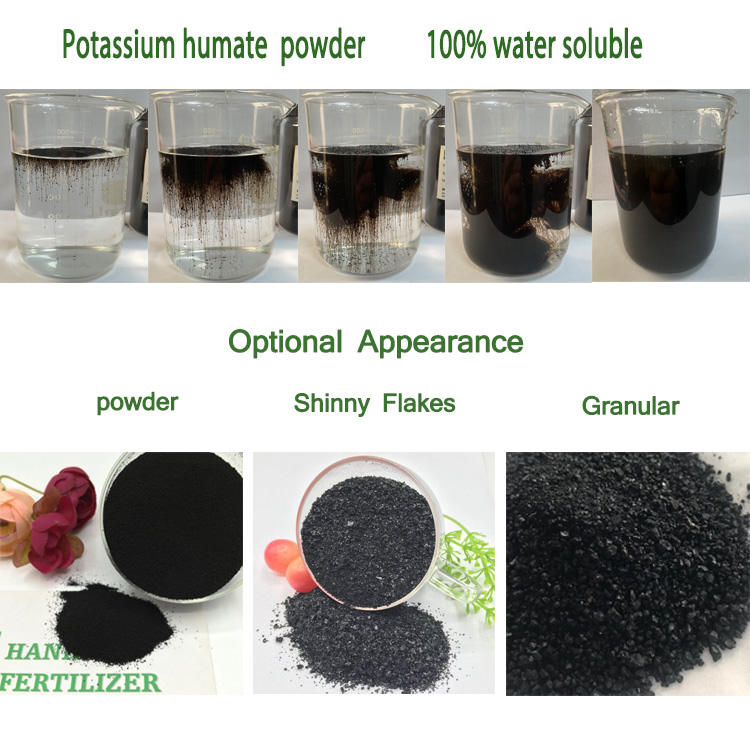
Oct . 21, 2024 21:30 Back to list
Exploring the Benefits and Uses of Humic Powder in Agriculture and Gardening
The Importance and Benefits of Humic Powder in Soil Management
Humic powder, derived from humic substances, plays a crucial role in soil management and agriculture. It is a natural organic compound that forms through the decomposition of organic matter, such as plant material, animal waste, and other organic residues. This process occurs over thousands of years, resulting in a rich source of nutrients that improve soil quality, enhance plant growth, and contribute to sustainable agricultural practices.
One of the primary benefits of humic powder is its ability to improve soil structure. It acts like a sponge, enhancing the soil's water retention capacity. This is particularly important in areas prone to drought, where water scarcity can lead to lower crop yields. By promoting better soil moisture retention, humic powder helps plants access the water they need to thrive, even during dry spells.
In addition to its water-holding capacity, humic powder also plays a vital role in nutrient availability. It binds to essential nutrients in the soil, preventing them from leaching away and making them more accessible to plants. This means that farmers can use less synthetic fertilizer, which not only reduces costs but also minimizes the risk of nutrient runoff that can pollute waterways. By improving nutrient uptake and reducing dependency on chemical inputs, humic powder supports more sustainable farming practices.
humic powder

Moreover, humic powder enhances soil microbial activity
. It serves as a food source for beneficial microorganisms, which in turn promote soil health by breaking down organic matter and cycling nutrients. Healthy soil microbiomes are essential for maintaining plant vitality and resilience against pathogens. As these microorganisms thrive, they create a more balanced ecosystem within the soil, leading to improved plant growth and disease resistance.Another significant advantage of humic powder is its potential to mitigate soil acidity and improve pH balance. Many agricultural soils can become too acidic due to various factors, including excessive rain and the application of chemical fertilizers. By applying humic powder, farmers can raise soil pH, creating a more favorable environment for crops and enhancing nutrient availability. This pH stabilization is crucial for achieving optimal conditions for plant growth.
Furthermore, humic powder is known for enhancing seed germination and promoting root development. Studies have shown that seeds treated with humic substances tend to germinate faster and have stronger root systems. This can lead to healthier plants that are better equipped to withstand environmental stressors. Stronger root systems also improve nutrient uptake, further enhancing plant growth and productivity.
In conclusion, humic powder is an invaluable resource for enhancing soil quality and promoting sustainable agricultural practices. Its ability to improve soil structure, increase water retention, enhance nutrient availability, support beneficial microbial activity, and stabilize soil pH make it a powerful tool for farmers and gardeners alike. As we face increasing challenges related to food security and environmental sustainability, incorporating humic powder into soil management practices can play a pivotal role in achieving both healthier crops and healthier ecosystems. By harnessing the natural benefits of humic substances, we can work towards a more sustainable and productive agricultural future.
-
10 10 10 Fertilizer Organic—Balanced NPK for All Plants
NewsJul.30,2025
-
Premium 10 10 10 Fertilizer Organic for Balanced Plant Growth
NewsJul.29,2025
-
Premium 10 10 10 Fertilizer Organic for Balanced Plant Growth
NewsJul.29,2025
-
Premium 10 10 10 Fertilizer Organic for Balanced Plant Growth
NewsJul.29,2025
-
50 Pound Bags of 13-13-13 Fertilizer for All Plants – Bulk & Organic Options
NewsJul.28,2025
-
High-Efficiency 15-30-15 Granular Fertilizer for Healthy Crops
NewsJul.28,2025
